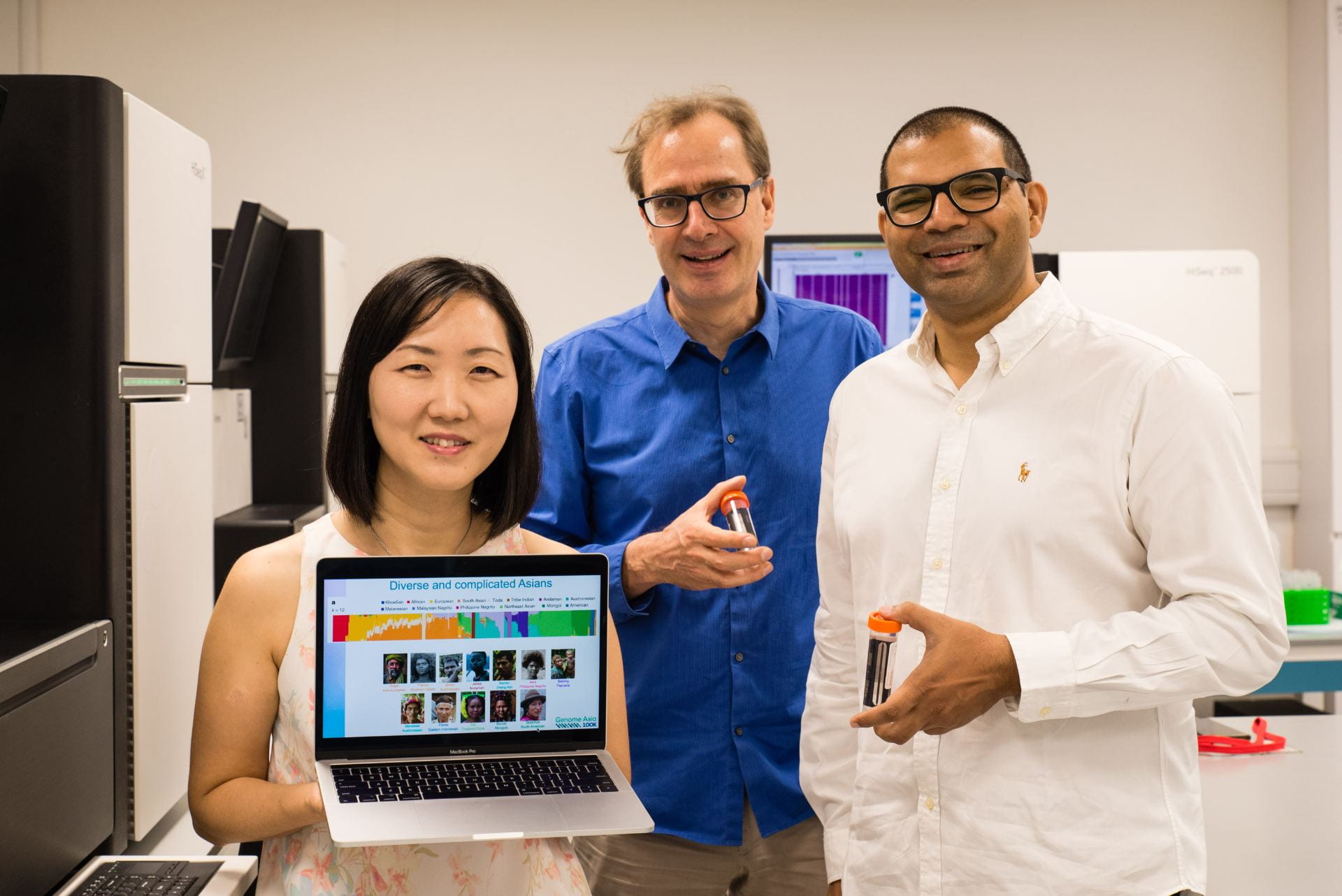A peek into Asia's genetic diversity
The GenomeAsia 100K Project led by NTU scientists will guide studies of diseases unique to Asian populations.
 (From left) Asst Prof Kim Hie Lim, Prof Stephan Schuster and GenomeAsia 100K Executive Chairman Mahesh Pratapneni led the pilot study. Credit: NTU.
(From left) Asst Prof Kim Hie Lim, Prof Stephan Schuster and GenomeAsia 100K Executive Chairman Mahesh Pratapneni led the pilot study. Credit: NTU.
Human genetic databases have to date focused on people of European descent, which means that crucial information on a large proportion of the world’s population remains lacking.
Enter the GenomeAsia 100K Project, which aims to increase the coverage of genetic diversity in Asia by sequencing and analysing the genomic DNA samples of 100,000 individuals from across Asia. It is co-led by the consortium’s scientific chairman, Prof Stephan Schuster of NTU’s Singapore Centre for Environmental Life Sciences Engineering, and Asst Prof Kim Hie Lim of NTU’s Asian School of the Environment.
In the pilot phase, the researchers collected and analysed datasets of 1,739 individuals from 219 ethnic population groups across 64 countries, using whole-genome sequencing. The pioneering study found that Asian population groups descend from at least ten ancestral lineages—a stark contrast to European populations, which all originate from a single ancestral lineage. Ethnic groups sampled in India, Malaysia and Indonesia showed the greatest genetic diversity.
A comprehensive genetic map for Asia will guide studies of diseases unique to Asian populations and help researchers identify drugs that respond differently in certain ethnic groups, the researchers say.
The study “The GenomeAsia 100K Project enables genetic discoveries across Asia” was published in Nature (2019), DOI: 10.1038/s41586-019-1793-z.



.tmb-listing.jpg?Culture=en&sfvrsn=370a7c71_1)

.tmb-listing.jpg?Culture=en&sfvrsn=ab6472c8_1)

.tmb-listing.jpg?Culture=en&sfvrsn=8fcd2938_1)